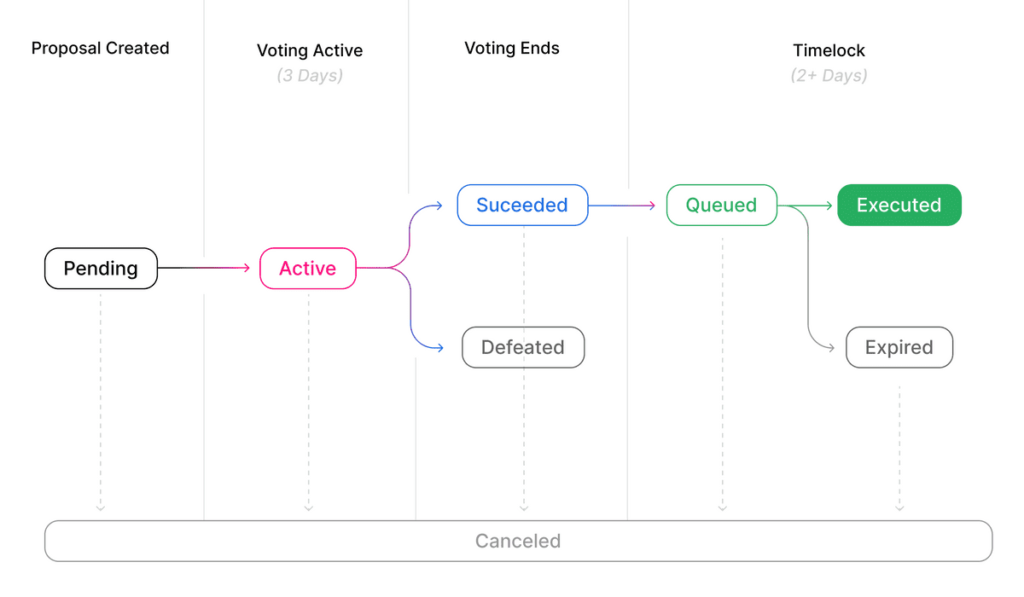Uniswap Decentralised Autonomous Organization is governed by its governance token(UNI) holders. UNI governance token holders can propose, vote and implement changes to the Uniswap protocol. I started analyzing the Uniswap governance voting datasets when Flipside Crypto announced a bounty. In this post I’ll share insights I learned from exploring Uniswap Governance Transactions as well as provide details on how you can access the data to derive your own insights. Before I present my insights, let me tell you about Flipside Crypto.
About Flipside Crypto
Flipside Crypto is a Boston based research organization that provides business intelligence to analyze crypto user behaviors. In simple terms they do all the heavy lifting of gathering, extracting and transforming raw blockchain transactions into an easy to access Snowflake data warehouse tables. Data is available to everyone for free to explore and derive great insights. Couple of lines of description about Flipside Crypto does not do justice to the amazing work they do. Checking out their website flipsidecrypto.com and join their amazing discord community flipsidecrypto.com/discord to learn about the amazing work they do. When you join their discord, wave say hi to GJ | Flipside Crypto#1919. GJ | Flipside Crypto is one of the finest mentors on the channel helping everyone to explore blockchain data.
How Uniswap Governance Voting Works?
Uniswap minted 1 billion UNI Governance tokens on genesis and these tokens are distributed to its stakeholders – users, community members, founders, developers and investors. These token holders can choose to vote by themselves or delegate to a trusted party to vote on governance proposals. Those indvduals who have time and passion to shape Uniswap’s future prefer to vote by themselves by actively participating. Others choose a delegate their votes to a trusted organization / person who can cast votes on their behalf.
Now let us look at the process of how UNI holders can create governance proposals and how community votes to accept or reject the proposals. This diagrams shows a quick high level overview of Uniswap’s governance process and you can read more about it over here.

Distribution of Voting Power For The Last 30 Days
Now that you understand how voters cast their votes (self or delegated) as well how the proposal are accepted or rejected by UNI token holders, lets look at the votes casted in the past 30 days.
In the past 30 days, UNI holders voted on two proposals Reduce the UNI proposal submission threshold to 2.5M (id 4) and DeFi Education Fund( id 5). The proposal 4 voting has ended and community accepted it and the proposal 5 voting is underway as I write this post. Here are the number of votes casted by voters on proposal 4 & 5 in the past 30 days.
From the above chart you see that delegators with huge backing play a key role. The delegator 0x2b1ad6184a6b0fac06bd225ed37c2abc04415ff4 casted the maximum number of votes - 15 Million votes. And the second biggest delegator of Uniswap ecosystem is Harvard Law Blockchain (0x2b1ad6184a6b0fac06bd225ed37c2abc04415ff4) with about 10.5 Million votes under its belt.
Though delegrators with massive backing of delegated votes decide the outcome, many small voters are actively participating in the voting process. Kudos to the voter 0xe90660ef9e7612c748a9d53e13a5738a6281b39a1d52e3099fa4f9e87d91d7e8 casted 0.01 UNI votes to participate in the governance proposal 4. The median votes casted by an address is around 114 and mean is at 667,449 votes.
While there are 26 voters with more than 500K votes with them, there are about 441 wallets with less than 500K votes. Among those 441 wallet address about 228 voters have less than 1000 votes.
Now let's look at the total number of votes each address casted on proposal 4 & 5 combined.
Learn to analyze the data by yourselves on Flipside Crypto
Would you like to analyze the data by yourself and learn about uniswap voters distribution? Then head over to Flipside Crypto and sign up. After signing up here are the steps to follow to explore data.
Query ethereum.events_emitted table to locate all votes casted on Uniswap Governance Proposals in the past 30 days. All Uniswap governance voting records have contract_address set to 0x5e4be8bc9637f0eaa1a755019e06a68ce081d58f and event_name set to VoteCast. Go ahead and run the below query.
SELECT
*
FROM
ethereum.events_emitted
where
contract_address = '0x5e4be8bc9637f0eaa1a755019e06a68ce081d58f'
and event_name ='VoteCast'
and block_timestamp > CURRENT_DATE - 30If you look at the results, you will find useful information of voting transaction in the column event_inputs. It is a JSON blob with three fields representing identifier of a proposal (proposalId), address of the voter's wallet (voter) and the number of votes casted (votes). Run the following query to extract data from the JSON blob along with date & time of the block when the votes were recorded
SELECT
event_inputs[ 'proposalId' ] as proposal,
case when event_inputs[ 'support' ] = true then 'For' else 'Against' end as support,
event_inputs[ 'voter' ] as voter_address,
event_inputs[ 'votes' ] / pow(10, 18) as votes,
block_timestamp
FROM
ethereum.events_emitted
where
contract_address = '0x5e4be8bc9637f0eaa1a755019e06a68ce081d58f'
and event_name ='VoteCast'
and block_timestamp > CURRENT_DATE - 30Now you know how to retrieve all Uniswap's governance votes. Go ahead and derive great insights from the information. What insights did you find?
